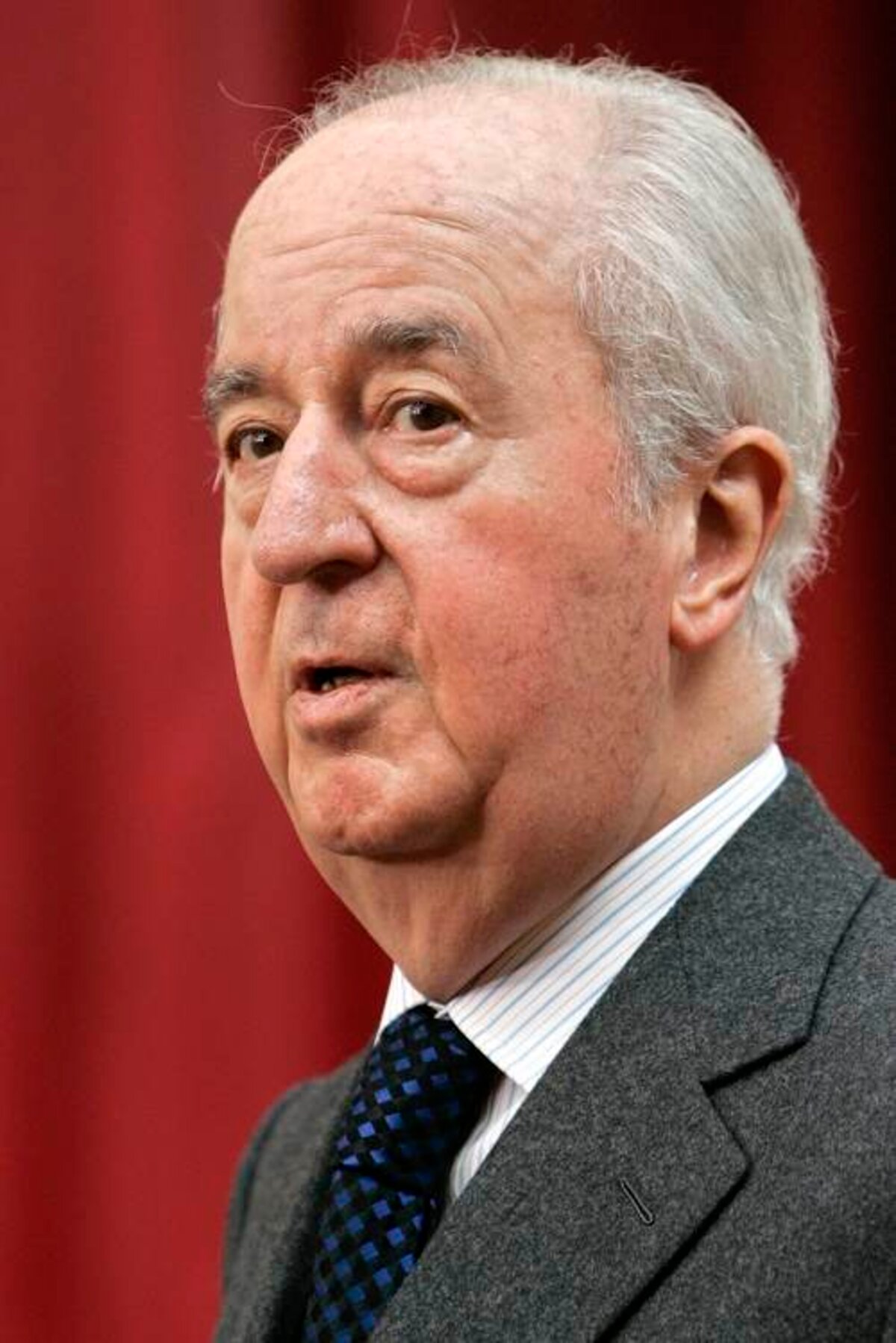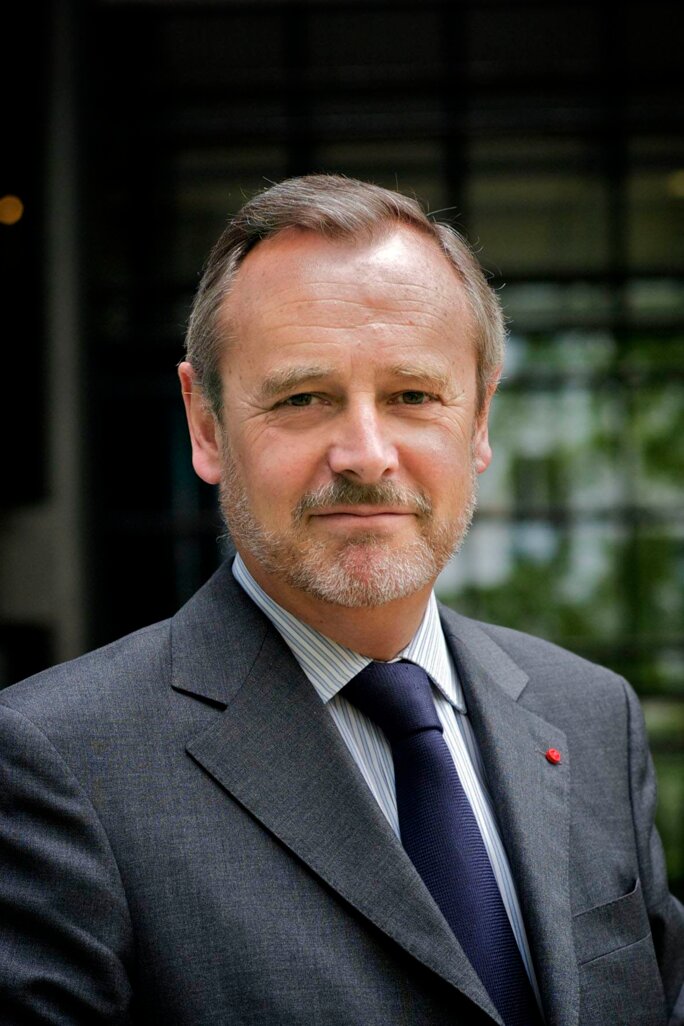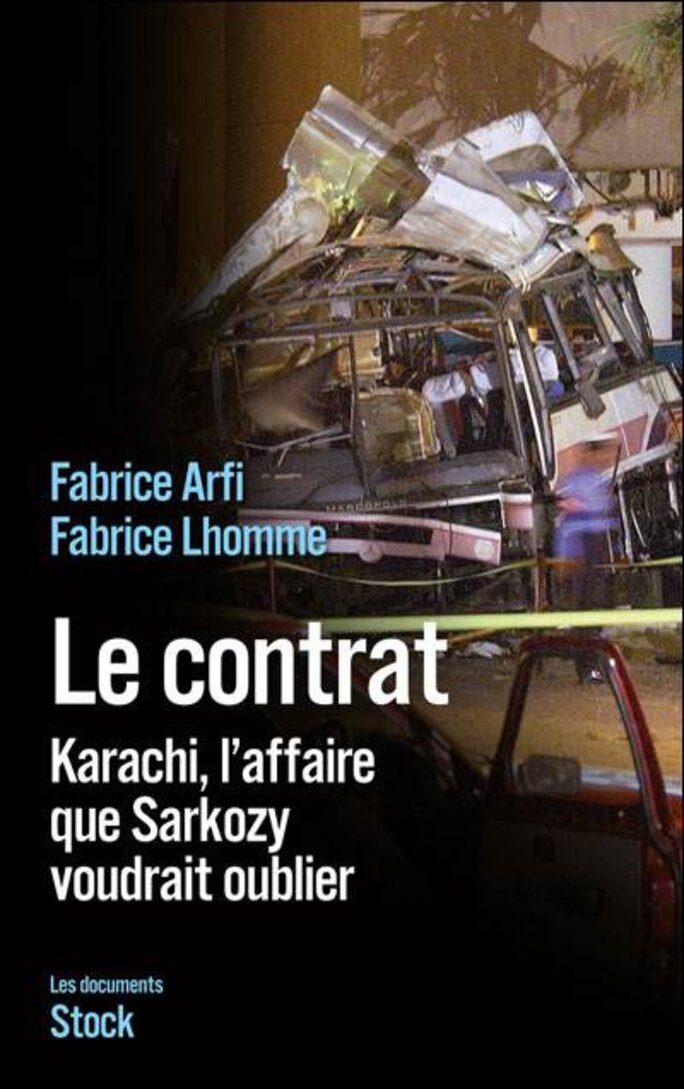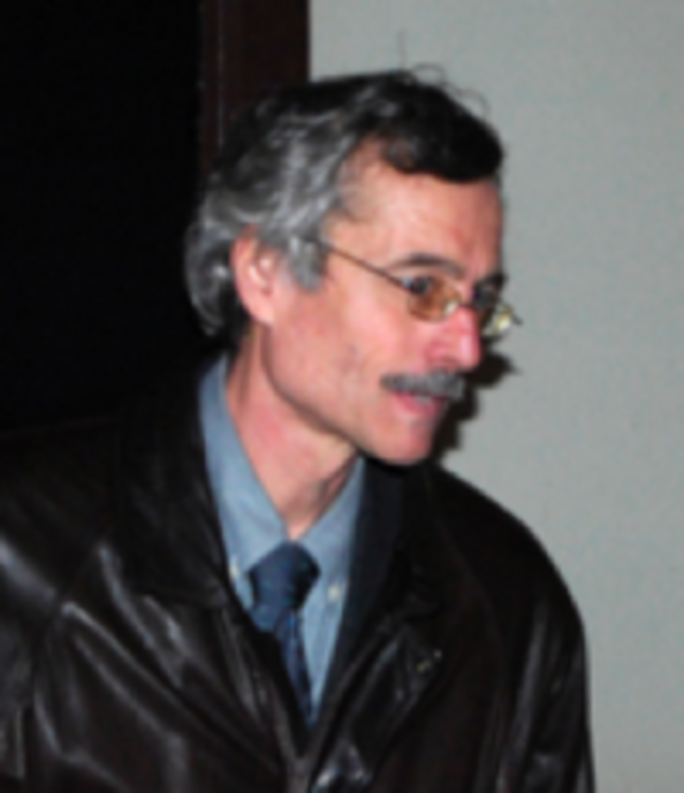Former French Prime Minister Edouard Balladur is once again facing questions over large and mysterious cash sums linked to a political organization under his control.
As Mediapart has previously reported, the depositing of high denomination bank notes into the campaign account for his failed 1995 presidential election bid came under close scrutiny by the country's top constitutional body the Constitutional Council.
The source of those cash payments has been one of the key questions in the Karachi affair in which Balladur, prime minister from 1993 to 1995, is suspected of having used illegal retro-commissions from the sale of three submarines to Pakistan to fund his 1995 campaign. Another allegation is that the cancellation of commissions relating to this sale was the motive behind the Karachi suicide bomb on May 8th, 2002, that left 11 French engineers dead. Balladur has dismissed the claims.

Enlargement : Illustration 1

Now Mediapart can reveal that in 2007 the prosecution authorities investigated cash payments into another of Balladur's political organizations, and we reveal here exclusive extracts from the police investigation. It centred on the Association pour la réforme ('Association for Reform'), or APR, which Balladur set up a few months after his election defeat in April 1995. Its first president was Nicolas Bazire, chief of staff to Balladur when he was prime minister.
The APR was specifically cited in the "Nautilus" report. This was the internal report drawn up by the state naval defence contractor DCN which built the three Agosta submarines sold to Pakistan. Direction des constructions navales In that report, just after the 2002 bombing in which the DCN engineers died, it established a link between the suicide car bomb attack and the stopping of commission payments.
The man who drew up the report, former police officer Claude Thévenet, referred to the Lebanese businessmen Ziad Takieddine and Abdul Rahman El-Assir, who are the intermediaries through whom the retro-commissions to Balladur's campaign are alleged to have passed.
On September 11th, 2002, he wrote: "In France the El-Assir network's main purpose was to ensure the funding of Edouard Balladur's campaign [...] after the failure of his candidacy, in the spring of 1995, this funding had to be transferred to the Association pour la réforme, located at 40, rue Pierre Charron [this was in fact a mistake, it is at number 50] in Paris, which was intended to continue the movement started by the Balladuriens."
The question marks over the APR's 2006 accounts were first raised by police officers from the national financial investigations squad, the Division nationale des investigations financières (DNIF) following a visit in the spring of 2010 to the national body that oversees electoral and political funding - the Commission nationale des comptes de campagnes et des financements politiques (CNCCFP).
During the visit, which was part of a preliminary investigation into claims of illegal financing in Balladur's 1995 campaign, officers asked the man in charge of the political party section of the CNCCFP, Stéphane Gauvin, if he had noticed any "anomalies".
Gauvin said that the annual tax assessments for Balladur's association APR, for 2005 and 2006, had attracted his attention, as large sums in cash (62,700 euros in 2005 and 92,900 euros in 2006) had been discovered in the accounts. "I would point out that this is the sort of reserves we seldom come across," Gauvin told them.
93,000 euros lying in a safe
Intrigued by this, the police officers approached the APR's two auditors, the firm Fiduciaire du Valois and Gérard Bienaimé. On March 29th, Ismaël Latoundji, who worked on the APR account for Fiduciaire du Valois from 2002, confirmed Gauvin's statements. "Following the checking of the accounts for the year 2006, our firm made, in a letter dated December 24th, 2007, a disclosure of criminal acts to the Paris public prosecutor," he said.
Latoundji added: "In this letter we indicated that in APR's accounts there remained in the till cash totaling 92,900 euros as of 31/12/2006 out of a total balance sheet of 121,008 euros, which is 76.77%, against a sum of 62,700 euros as of 31/12/2005, or 48.48%. We considered that, given the size of this political body, the cash in hand represented amounts that were far too high with regard to the expenditure taken care of by this association. I note that in 2003 and 2004 the balance of the cash register was 48,000 euros and 31,000 euros in 2002. The amount in the till has just kept on increasing."

Enlargement : Illustration 2

Fiduciaire du Valois tried to get an explanation from the association. "It was replied to us in writing, on June 26th, 2006, [by] the president of the association M. Hugues Hourdin, that the size of these cash sums was due to the fact that the financial authorities at the [National] Assembly demand that the weekly breakfasts for deputies [Members of Parliament] should be paid for in cash," recalled Latoundji, who added: "This explanation did not convince us, which is why in particular we wrote to the public prosecutor,' he added.
Hugues Hourdin, who is currently chairman of the board of the Mont Blanc tunnel and motorway operators Autoroutes et Tunnel du Mont-Blanc (ATMB), belongs to Balladur's inner circle. He was in charge of the general secretariat of the Gaullist conservative Right political party the Rassemblement pour la République (RPR) from 1989 to 1991 and an adviser on social affairs for the prime minister - Balladur - in 1993 and 1994. From October 2008 to March 2009 he was also inspector-general at the commission examining local government reform, the Comité pour la réforme des collectivités locales, of which Balladur was president. Hourdin took over the presidency of the APR from Nicolas Bazire.
Latoundji also told the police that in 2007 he had had to insist a great deal in order for Hourdin to allow Fiduciaire du Valois to check the state of the cash register themselves. Finally Hourdin agreed. "It was the June 27th, 2007, at the headquarters of the [political party and successor to the RPR] UMP, rue de La Boétie [Paris]," said Latoundji.
"M. Hourdin showed us the sum of 93,000 euros in cash which was in a safe," said Latoundji. This was the amount that was in the statement of accounts on December 31st, 2006.
The police asked: "How was it that the sum had not changed in six months?"
The auditor replied: "We asked the question but we got no reply. Even if we were satisfied in having carried out an inventory of the cash register, we gave a qualified opinion on the accounts taking into account the size of the balance and the level of withdrawals in cash, on average 2,500 euros a month, which seemed excessive in regard to the association's expenditure."
Cash for breakfasts
The curiosity shown by Fiduciaire du Valois did not go down well with the management at the association. "We thought we would be retained in our position [as auditors] and had in November 2007 planned to carry out an inspection of the cash register," said Latoundji. "In December, a formal notice was delivered to our practice notifying that we had been replaced by M. Jérôme Abadia. I would add that we had not been summoned to the board meeting on June 11th, 2007, [although] M. Hourdin had confirmed to us by telephone in September 2007 that we had been retained."
The investigators then asked Latoundji how he had divided the work with APR's other auditor Gérard Bienaimé. "As the association was small we doubled up by carrying out the same verification work." He added: "However, [Gérard Bienaimé] did not want to join us in the denunciation to the public prosecutor."
Yet Bienaimé was perfectly aware of the anomalies found in APR's accounts. The proof is a letter sent to him by Fiduciaire du Valois on December 21st, 2007, three days before they contacted the prosecutor. This informed him that "the cash in hand represents very large sums in relation to the balance sheet total and in any case far too big in relation to what would seem to us to be necessary to us for the exercise of association activities. For two years we have included in our common report a caution over this issue."
When Gérard Bienaimé himself was interviewed by police on March 30th he was asked: "How was it that you did not associate yourself with the letter of disclosure of criminal acts sent to the prosecutor by the company Fiduciaire du Valois?"
Bienaimé replied: "I asked my colleague [at Fiduciaire du Valois] to verify the amounts in the place where they were, that's to say in the safe of which Hugues Hourdin was one of the guardians. My colleague later carried out this procedure which seemed to me suitable for the situation and sufficient. My colleague had called me to tell me that he had carried out the inspection and had indicated that there were no anomalies."
This declaration appears to be contradicted by the letter, mentioned earlier, addressed to Bienaimé on December 21st, 2007. Bienaimé also conceded that "in 2007/2008 in order to remove all suspicion I asked M. Hugues Hourdin to pay this sum [of cash] into the bank, which he did or had someone do."
The police then asked him: "The company Fiduciaire du Valois indicated to us that they wrote to the public prosecutor because they had not been convinced by the explanation given by Monsieur Hugues Hourdin as to the use of these cash sums. He had said that the [National] Assembly administrative and financial commission required that the weekly breakfast [meetings] of deputies should be paid for in cash. What was your opinion on this point?"
Bienaimé replied: "I have no opinion. For me this disclosure was not justified. The essential thing is that the physical inventory of the cash is confirmed to be accurate and that is what the Fiduciaire du Valois told me on the phone."
However, in relation to the large sums of cash Gérard Bienaimé conceded that while "an association can at any moment be called on to have to pay small amounts in cash...." in this case "the liquid assets were out of all proportion with its needs [...] the association made regular withdrawals since 2004 without a specific designated use and those in charge acknowledged this by putting the money in the bank at the request of the auditors."
Raising a fortune from 'gadgets'

Enlargement : Illustration 3

The investigators were particularly interested in Bienaimé as he had also been the auditor for the Association de financement de la campagne présidentielle d'Edouard Balladur (AFICEB) - Balladur's campaign finance association - in 1995. It was this association's accounts into which just over ten million French francs had been paid soon after Edouard Balladur's defeat in the first round of the presidential election of that year. Had Bienaimé not been alerted by the paying in of such a large cash sum?
In an interview for a book on the Karachi affair by Mediapart reporters Fabrice Arfi and Fabrice Lhomme ("Le Contrat", published in May by Stock), Bienaimé was tackled on the matter. Apparently rather embarrassed, the accountant told us: "Quite honestly, I no longer remember the detail, it's very ancient stuff, all that. Nonetheless I remember that, from the accountancy point of view, I had absolutely no difficulty in approving the accounts of Monsieur Balladur's campaign, which, moreover, the Constitutional Council also did in turn afterwards. Everything was in order. If that hadn't been the case I would not have given the green light, and I would have informed the competent authorities, for example the public prosecutor."
However, what we now know is that the Council's own investigators, having examined the accounts, recommended that they be rejected, in particular because of the unexplained presence of large sums of cash. When we recently questioned Bienaimé about this again, he appeared to become quite irritated, saying he had nothing more to say about what he considered an "old story" and abruptly ended the conversation.
When questioned by the officers of the DNIF on March 30th, Bienaimé gave a similar answer to that which he originally gave us. "Do you remember if cash had been deposited in the accounts of the AFICEB?" he was asked.
"There must have been cash deposited in the association's accounts, collected following public rallies, particularly through the sale of promotional items or similar," he said. This was the same line of argument used by Balladur when he came before the parliamentary inquiry into the Karachi attack. The former prime minister had explained that the 10 million or so francs - in 100 and 500 franc notes only - paid into the association's account came from the sale of gadgets at election meetings.
Investigation swiftly shelved
"Did you notice any anomalies during the checking of AFICEB's accounts?" the investigators asked the accountant. "No. I did not notice any anomalies in the accounts of AFICEB at the time. I note that AFICEB's accounts were examined and approved by the Constitutional Council," Bienaimé said.

In November, Judge Renaud Van Ruymbeke, in charge of investigating the financial side of the Karachi affair (suspected illegal financing of Balladur's election campaign from kickbacks out of the sale of the submarines to Pakistan), had the accounts of the Association pour la réforme's sent to him by the French national commission for electoral and political funding, the CNCCFP. These showed that the CNCCFP found the APR's 2006 accounts to be in "compliance" while at the same time qualifying its approval for the second year in a row. "The sum of cash in the funds and the movements observed seem excessive with regard to the expenditure taken care of by the association," said the Commission, citing the auditors.
The judge will also be able to examine the very swift preliminary investigation carried out by the financial section of the Paris prosecutors' office after the auditor's letter of denunciation at the end of 2007. These investigations were essentially restricted to an exchange of letters between the president of the APR and the prosecutors.
Hugues Hourdin's explanations satisfied the prosecutor's office which decided in March 2008 that no further action should be taken on the matter. However, that was before the Karachi affair became public and the discovery that large deposits of cash had been made into the AFICEB account in 1995. The prosecutors' office has not ruled out the possibility that Judge Van Ruymbeke could relaunch an investigation into the origin and destination of the cash that lay in the safe at the APR at the end of 2007.
-------------------------
English version: Michael Streeter


